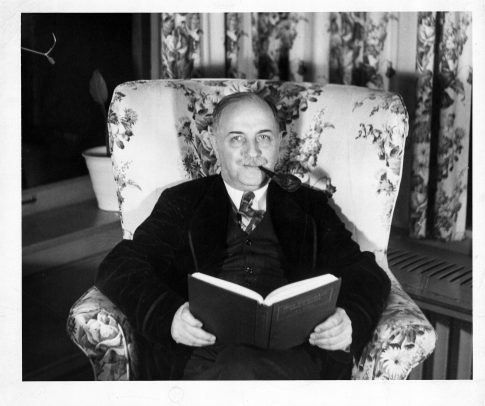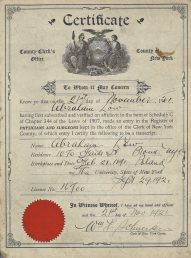UIC receives archives of pioneering neuropsychiatrist

More than 80 years ago, the state-of-the-art treatment for mental illness was electric shock treatment. Cold water immersion, insulin shock and lobotomies were other remedies for those with recurrent “nervous” disorders. The stigma of mental illness was compounded in states like Illinois, where one received a court record when released from a state hospital.
In 1937, Dr. Abraham A. Low, a neuropsychiatrist with the Psychiatric Institute at the University of Illinois, worked with his patients to form the organization now known as Recovery International, or RI, to help patients reintegrate into the community following hospitalization. He developed techniques of self-help to augment outpatient treatments by professionals. Eventually, Dr. Low’s lectures and practices evolved into the Recovery Method, a rigorous cognitive-behavioral training and meeting standard, including readings, four-step examples and “spotting” techniques. Recovery meetings are peer-led by trained volunteer leaders who have experienced and benefited from the RI Method themselves.
Recovery International, the 80-year-old nonprofit organization focused on mental health, has donated early organizational records and the personal papers of its founder, Dr. Low, to the University of Illinois at Chicago’s Special Collections and University Archives at the Library of the Health Sciences–Chicago.
“These records provide researchers with an important opportunity to examine the history and growth of mental illness outpatient treatment,” said Megan Keller Young, special collections librarian.
Among the records are nearly complete sets of newsletters and other publications, including books, pamphlets and brochures. The records also include transcriptions of taped interviews with Dr. Low done shortly before his death, unpublished manuscripts, and Dr. Low’s correspondence with his wife, Mae, key leaders and others.

Dr. Low was born in Poland, educated in Vienna and was a practicing psychiatrist in New York prior to coming to Chicago. The records include his diploma, medical license, personal journals and other ephemera. Of special interest are his lectures and writings that constitute pioneering work in cognitive-behavioral therapy and methodology of peer-led support groups.
Once processed, the records of Recovery International and Dr. Low will be available to the public in the Special Collections and University Archives Reading Room at the Library of the Health Sciences–Chicago.
Today, Recovery International provides tools for people to deal with depression, anxiety, fear and various forms of mental illness. Each week, RI offers more than 450 meetings in 40 areas throughout the United States, Canada, Ireland and Puerto Rico. Participants and members live in more than 20 countries throughout the world, with books available in English, Spanish and French.
The Library of the Health Sciences–Chicago is located at 1750 W. Polk St. For more information, call 312-996-8977. The library includes materials on medicine, nursing, dentistry, pharmacology and other health-related professions. Its special collections include the archival records of the Illinois Occupational Therapy Association and Horizon Hospice, as well as public health, medical education, nursing, psychiatry, and neurology rare book collections, among others.
Media Contacts:
Carlos Sadovi
University of Illinois at Chicago
312-355-2491
csadovi@uic.edu
Sandra Wilcoxon
CEO, Recovery International
312-962-5991
swilcoxon@recoveryinternational.org
